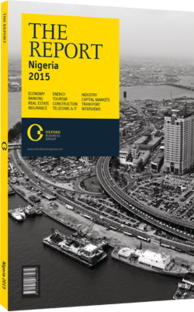Oil and gas
The Company
Oando was listed on the Nigerian Stock Exchange in February 1992 and in 2005 became the first African company to have a cross-border inward listing on the Johannesburg Stock Exchange. In 2012 its upstream business, Oando Energy Resources, became the first indigenously Nigerian firm to be listed on Canada’s Toronto Stock Exchange. The company’s business operations are organised into six divisions: in the upstream sector, exploration and production, and energy services; in the midstream sector, gas and power; and in the downstream sector, marketing, supply and trading, and terminals and logistics.
By adding gas and power distribution, international supply, trading and energy services to its petroleum marketing business, Oando today has become an integrated energy solutions company with operations spanning several jurisdictions of Europe, North America and West Africa, primarily in Nigeria. The company made a bold entry into oil and gas upstream services via Oando Energy Services (OER), an integrated oilfield services company whose robust portfolio of oil and gas fields includes interests in onshore and offshore assets across the Niger Delta basin and on the continental shelf. OER holds interests in 16 licences for exploration, development and production of oil and gas concessions. Its portfolio spans the various parts of its upstream operations, which have a net average production of about 44,512 barrels of oil equivalent per day (boepd).
Financial Performance
Oando recently released its much-awaited fiscal year 2013 audited accounts alongside its half-year 2014 results, which show a reversal of fortune in June 2014 as the company’s management was able to turn around its woeful performance in full-year 2013 to a positive one in the first half of 2014. Cost of sales came in at N144bn ($878.4m) for H1 2014, a 42.40% decrease from the N250bn ($1.53bn) recorded in H1 2013. Gross profit in that period soared by 67.05% to N50.51bn ($308m), from N30.23bn ($184.4m) in the same period of 2013. The chief cause of this rise in profit was the 42.40% reduction in sales cost, which stood at N144.05bn ($878.7m), down from N250.09bn ($1.53bn) in the corresponding period of 2013. The company’s turnover also fell by 30.60% to N194.56bn ($1.19bn), from N280.32bn ($1.71bn) in 2013. Oando’s recent expansion drive delivered high returns for equity holders as the company posted an impressive N24.32bn ($148.4m) operating profit and N9.42bn ($57.5m) profit after tax, representing 145% and 110% increases, respectively, over half-year 2013 results. Net assets for H1 2014 were N204.6bn ($1.25bn), a 26% increase year-on-year. Profit before tax surged by 103.60% to N12.53bn ($76.4m), compared with N6.1bn ($37.2m) in H1 2013. In light of the fiscal year 2013 results, the company proposed a final dividend of 30 kobo ($0.001) per share, while in light of the half-year 2014 report, it proposed an interim dividend of 70 kobo ($0.004) per share.
Development Strategy
Oando’s strategy is to grow its reserves continually through the development of its existing portfolio and the acquisition of new assets via an ambitious expansion strategy. With the ConocoPhillips asset acquisition now complete and immediately generating cash, OER currently has a total hydrocarbons production capacity of about 45,000 boepd, and expects annual revenues of more than $600m and annual free cash flows of about $150m. Oando intends to pursue expansion of its oil and gas portfolio through both organic and inorganic growth. The inorganic growth will be driven by the acquisition of operational and near-term production assets at competitive prices from international oil companies during their divestment of assets in the prolific Niger Delta region and the Gulf of Guinea. Oando will also continue to take competitive advantage of Nigeria’s local content policy, which stipulates that oilfield services contracts be offered first to competent domestic companies before foreign ones. Oando intends to position itself as the leading preferred domestic oilfield services partner and provider of high-value oilfield services. Oando is set to optimise its current gas and power footprint through growing market share.
You have reached the limit of premium articles you can view for free.
Choose from the options below to purchase print or digital editions of our Reports. You can also purchase a website subscription giving you unlimited access to all of our Reports online for 12 months.
If you have already purchased this Report or have a website subscription, please login to continue.

